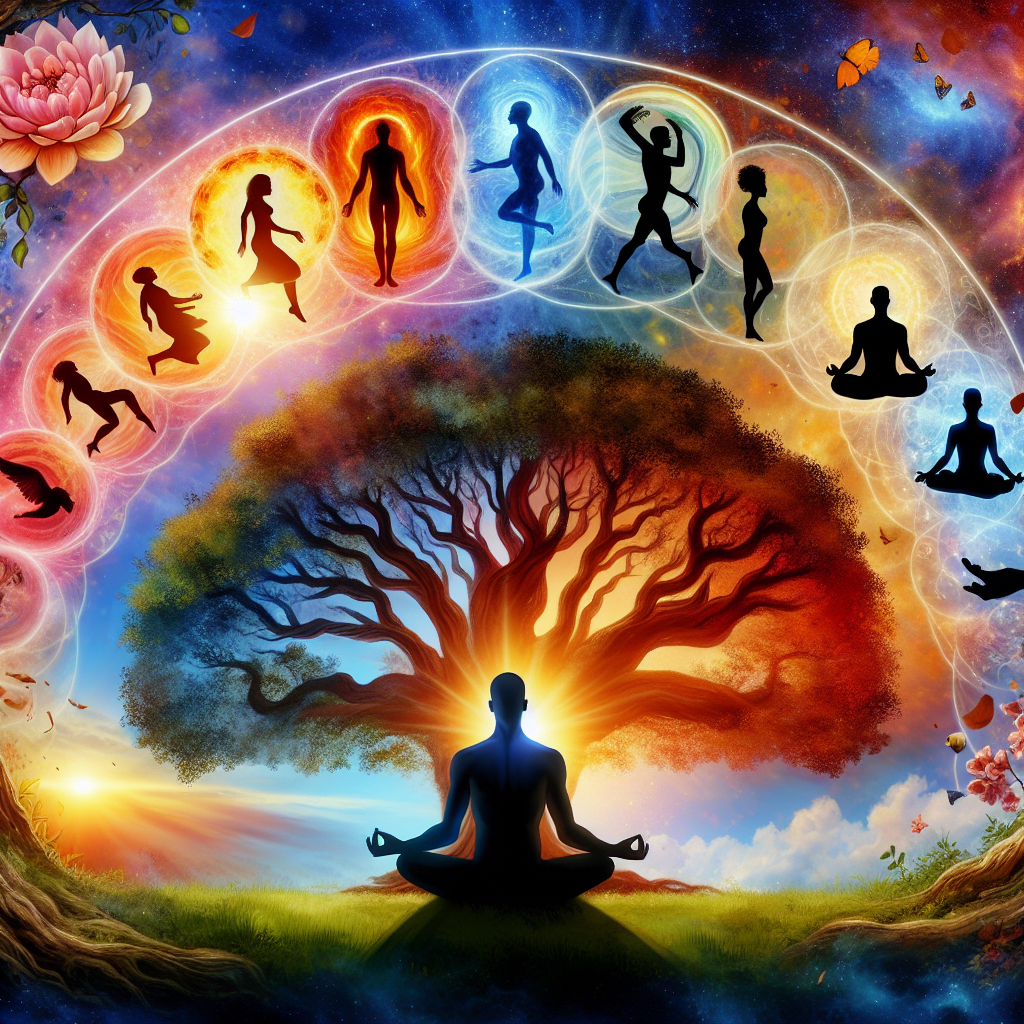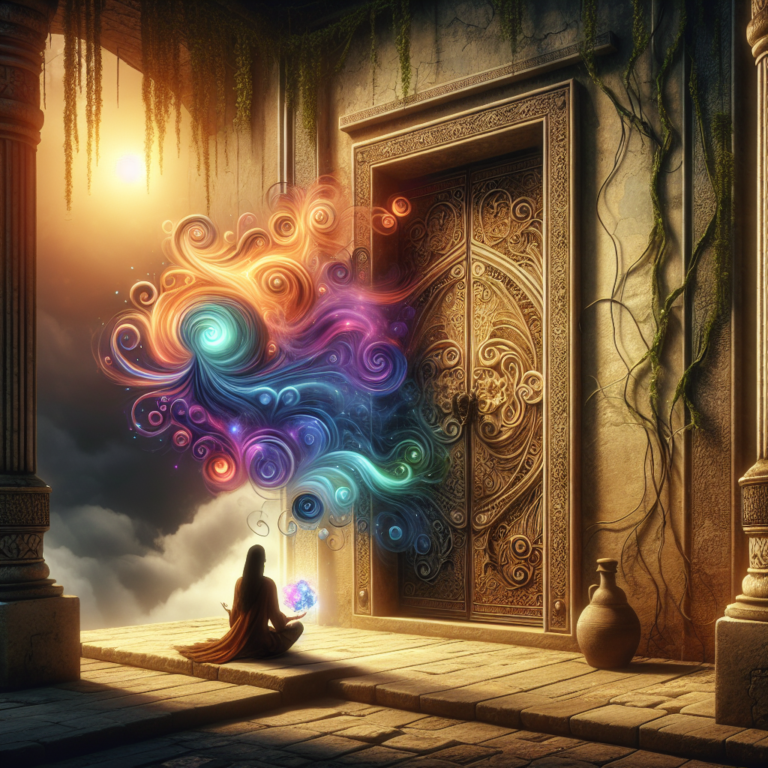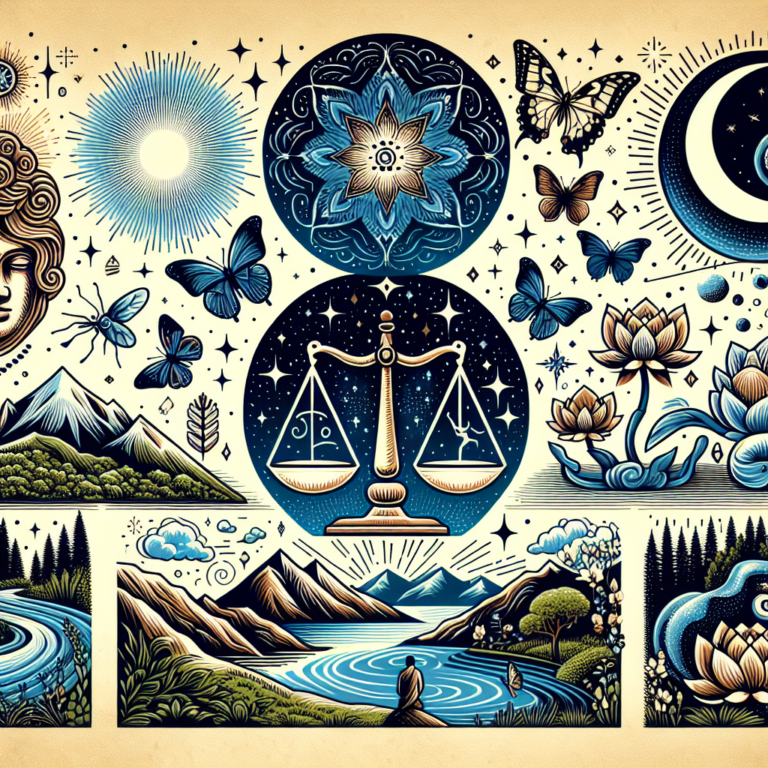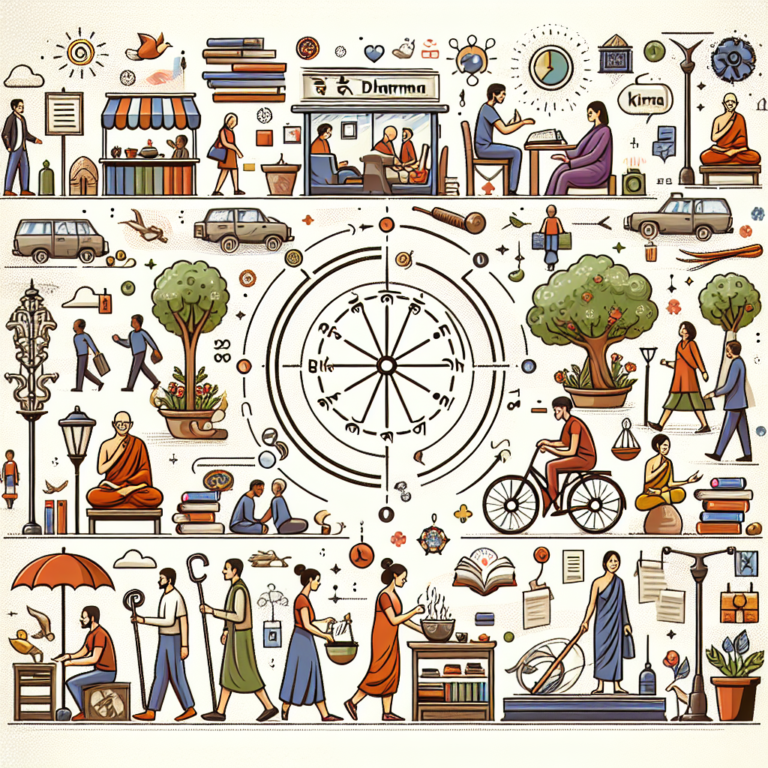The Cycle of Life: How Karma Shapes Our Reincarnation Journey
The concept of the cycle of life, particularly in spiritual traditions, is deeply intertwined with the beliefs surrounding karma and reincarnation. This intricate web of existence serves not only as a philosophical backbone for many cultures but also provides a practical framework for understanding our actions and their consequences across lifetimes. In exploring how karma impacts our reincarnation journey, we can discern patterns that guide personal and collective evolution.
Understanding Karma
Karma, derived from the ancient Sanskrit word meaning "action," posits that our deeds, whether good or bad, have a corresponding effect on our future experiences. In many spiritual traditions, particularly Hinduism and Buddhism, karma is neither considered purely punitive nor rewarded in a straightforward sense. Instead, it operates as a law of morality and ethics, illustrating a cosmic balance sheet of sorts.
Every action taken, whether in thought, word, or deed, generates an energy that reverberates through our lives and the lives of others. This interplay creates a chain reaction that contributes to our unique spiritual tapestry. Good actions can cultivate positive outcomes, while harmful actions can lead to suffering—both in the present and in future incarnations.
In the broader context, karma provides a lens through which individuals can interpret life events. When faced with challenges, one might reflect on past actions and decisions, seeking to understand the karmic lessons embedded within their experiences. This mindful approach nurtures growth and development.
Reincarnation: Life Beyond Death
Reincarnation, or the belief in rebirth after death, is a pivotal aspect of many spiritual paradigms. It suggests that our souls are immortal and that, after the physical body dies, we are reborn into new forms. This cycle of birth, life, death, and rebirth, known as samsara, is not merely a confined loop; instead, it encapsulates the journey of the soul toward enlightenment and liberation.
In Hinduism, for example, one’s current life circumstances—including social status, health, and personal challenges—are believed to be influenced by the karma accumulated in past lives. The essential aim is to attain moksha, or liberation from the cycle of samsara, through righteous living, self-realization, and spiritual enlightenment.
In Buddhism, the concept of samsara carries a similar sentiment; however, it emphasizes impermanence and the importance of mindfulness. Karma plays a vital role in steering one’s path toward Nirvana, which is the cessation of suffering and the cycle itself. By understanding the principles of karma and reincarnation, one can develop a deeper consciousness regarding their actions and intentions.
The Interconnection of Karma and Reincarnation
Karma and reincarnation are inextricably linked, as one influences the other in profound ways. Each new incarnation provides an opportunity for the soul to practice, learn, and ultimately rectify past misdeeds. This relationship forms a continuum of growth, where each life serves as a stepping stone toward higher understanding and personal evolution.
-
Lessons to Be Learned: Each lifetime becomes an arena where souls can confront unresolved issues, rectify past mistakes, and learn vital lessons. For instance, if a soul exhibited selfishness or greed in a previous life, it may reincarnate into circumstances that challenge it to practice generosity and selflessness.
-
Karmic Relationships: One fascinating aspect of karmic retribution utilizes relationships. Souls that share unresolved karma often reincarnate together. These connections may manifest as familial bonds, friendships, or adversarial dynamics. The purpose is to facilitate healing and growth collectively, allowing souls to work through shared karmic narratives.
-
Gaining Insights: With each lifetime, souls accrue wisdom and insights. Experiences, both joyful and painful, contribute to global consciousness. Ultimately, this is a journey towards greater understanding and compassion, fostering societal evolution as individuals work not only on themselves but also on their interconnectedness.
- Healing and Forgiveness: The cycle of life can serve as a mechanism for healing generational trauma. Recognizing that past actions shape present conditions can lead to a desire for forgiveness and healing, not just personally, but extending to familial and societal levels. Understanding karma enables individuals to break cycles of negativity and work toward a better future for themselves and subsequent generations.
The Journey to Enlightenment
The end goal of both karma and reincarnation is to attain enlightenment or liberation from the cycle of samsara. This journey is unique for each individual, reflecting personal histories and intrinsic motivations. While the path may seem daunting, it is essential to remember that progress is tied to intention and conscious choices.
Practices such as meditation, mindfulness, and ethical living are tools utilized by many spiritual seekers to cultivate awareness and align actions with positive karmic outcomes. Engaging in selfless acts and understanding the impact of one’s behaviors can lead to a net positive shift in karmic energy, thereby paving the way for more favorable reincarnations.
Moreover, acknowledging the impermanence of life and the interconnectedness of all beings fosters compassion. Such awareness contributes to a cultivation of goodwill, ultimately enhancing the overall fabric of humanity.
Conclusion
The cycle of life, influenced by the theories of karma and reincarnation, forms a crucial foundation for understanding existence beyond mere physical reality. It provides both a context for personal reflection and a roadmap for spiritual awakening. Understanding that our current life circumstances are not arbitrary but rather a culmination of our past actions invites us to approach life with a profound sense of responsibility, compassion, and awareness.
As we navigate the complexities of our spiritual journey, let us remain mindful of the choices we make, the intentions we hold, and the legacies we leave behind. By doing so, we not only enrich our own lives but also contribute to the collective evolution of consciousness.
FAQs
1. What is the difference between karma and reincarnation?
Karma refers to the law of cause and effect, whereby an individual’s actions influence their future experiences. Reincarnation is the process of being reborn into a new body after death, where past karma shapes the circumstances of the new life.
2. Can negative karma be changed?
Yes, negative karma can be changed through positive actions, intentions, and behaviors in this lifetime. Practicing mindfulness, making amends, and engaging in selfless deeds can help shift accumulated negative karma.
3. How do I know what my past karma is?
While it may not be explicit, reflecting on recurring life themes, challenges, and relationships can provide insights into past karma. Some people seek guidance through meditation, spiritual practices, or consultations with professionals in the field of past life regression.
4. Do all cultures believe in karma and reincarnation?
Not all cultures share these beliefs; however, concepts of karma and reincarnation are predominant in Hinduism, Buddhism, Jainism, and some New Age philosophies. Other cultures have different interpretations of life, death, and morality.
5. Is there a specific way to break the cycle of reincarnation?
The journey to enlightenment or liberation varies by individual. However, practices such as meditation, ethical living, cultivating compassion, and seeking spiritual knowledge are commonly recommended as ways to break the cycle of reincarnation.
Of course! What kind of prompt are you looking for? It could be a writing prompt, a discussion topic, a creative challenge, or something else entirely. Let me know how I can help!, #Cycle #Life #Karma #Shapes #Reincarnation #Journey, #Cycle #Life #Karma #Shapes #Reincarnation #Journey, 1735177624, the-cycle-of-life-how-karma-shapes-our-reincarnation-journey





